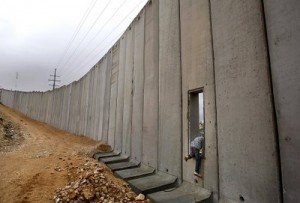 In early November Cubans on the island and in exile and discussed the pros and cons of Decree 288 which amends the General Housing Act 1988, which prevented the sale of real estate, stripped homeowners who left the country of their property, and made it difficult to transfer their houses through dozens of rules and prohibitions that favored the corruption of thousands of employees at all levels.
In early November Cubans on the island and in exile and discussed the pros and cons of Decree 288 which amends the General Housing Act 1988, which prevented the sale of real estate, stripped homeowners who left the country of their property, and made it difficult to transfer their houses through dozens of rules and prohibitions that favored the corruption of thousands of employees at all levels.
The decree is like a crack in the wall of the island’s bureaucratic framework, but to survive the dictatorship needs to abolish the absurd measures and ease the lives of the people in order to focus on the challenges posed by the crisis, foreign dependency, technological advances and the removal of the entitlements granted before 1990.
So far the changes are not essential, but reflect the need to free up some sectors of the economy and limit corruption so as to be able to speak of movement. Cuba moves to the beat of the traffic lights. The powers-that-be alternate the red light with green and yellow as the spark of hope.
Let’s look at the green lights that shake the State web and open paths to freedom:
- From 2008 to the present 740,000 acres of land — out of 16 million acres in agriculture — have been assigned in personal usufruct.
- Self-employment has been extended with the authorizing of almost 200 categories of private business. There are 333,000 self-employed, among whom are 1,438 owners of mini restaurants.
- The layoffs of a million and a half State employees has begun, which affects the workers but frees them from their habitual dependence and makes the economy more healthy.
- In September the sale of old cars was approved for Cubans, and of new cars for foreigners resident in Cuba and employees authorized by the government.
- The purchase of cellphone, computers and other appliances was authorized, as well as the construction of homes by people’s “own efforts.”
“The camel’s nose under the tent.” The reforms are slow and insufficient. The red light still guarantees governability. Let’s see:
- The Communist Party retains the state-political monopoly by controlling the media, education, economy, health sector, public administration, the armed forces and police.
- Laws criminalize the opposition and encroach on freedoms of speech, press, association, assembly, elections and other rights.
- Despite the legal emigration of 38,000 people a year, Cubans who travel must apply for an expensive State Travel Permit, while exiles need an Entry Permit.
- The government freed more than one hundred political prisoners, but increased repression against the peaceful opposition.
- The elimination of subsidies, increased taxes and the gradual cessation of food rationing increases the collective poverty.
It seems otherwise, but so much control may be the “Achilles heel” of the authorities, unable to resolve the failure of the system, the endemic corruption, theft as a way of life, and economic dependence on Venezuela, China and other allies. The government purchases from abroad eighty percent of the food consumed by the country.
The dilemma doesn’t lie in the willingness to make changes by those above, nor in the creation of opportunities to lift citizens out of poverty, but on opening the doors of the wall, gradually or abruptly, according to the pushing or the impatience of those below.
Note: Published originally in Cubanet.
November 16 2011
